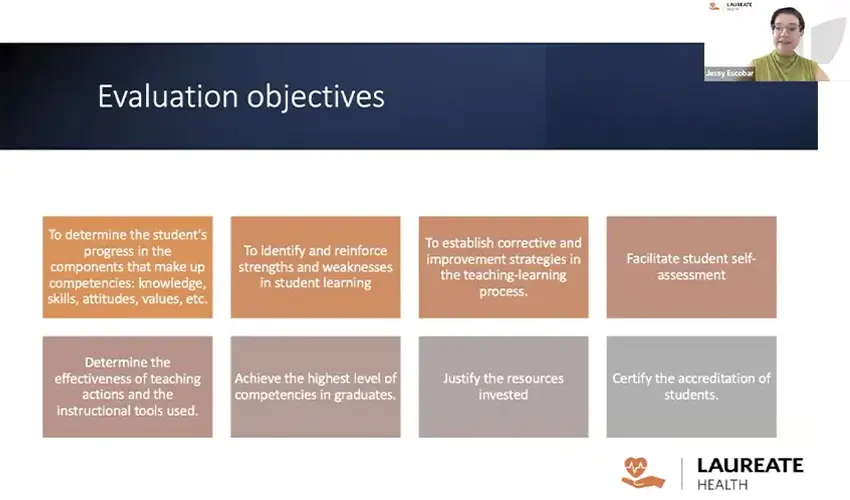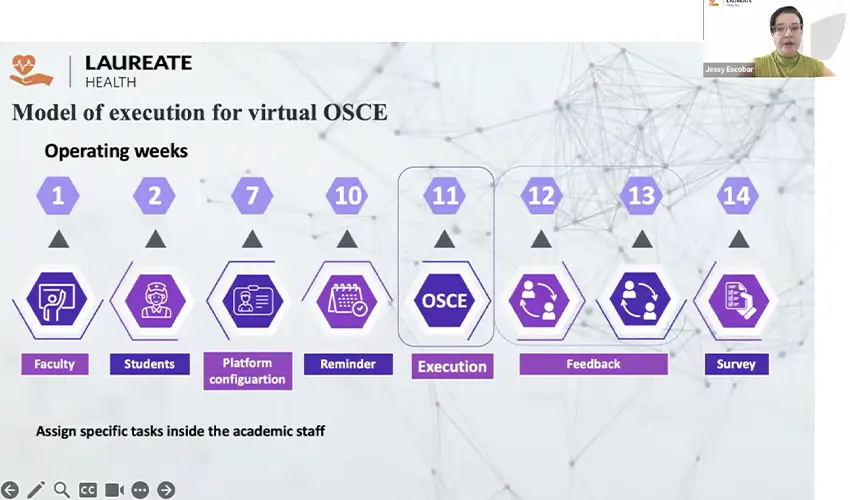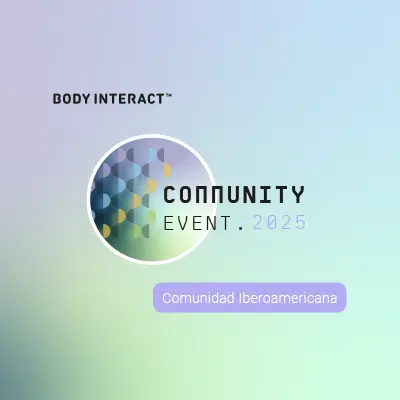Community Event - Navigating Competency Assessment Challenges
Inserted in the topic of assessment, this post regards Prof. Jessy Escobar’s presentation on Body Interact Community Event 2024 – Navigating Competency Assessment Challenges: OSCE Approaches with Virtual Patients
Speakers Presentations

Jessy Mariel Escobar Cantarero
MD, MBA, PhD
Professor Jessy Mariel Escobar Cantarero is a Doctor of Medicine and Surgery from the National Autonomous University of Honduras, with a Master’s in Business Administration from the Central American Technological University, and a Doctorate in Education from the Ibero-American University.
Her work focuses on utilizing new tools and methodologies for teaching and learning in health sciences, particularly in the areas of Structure and Function. She has played a key role in strengthening simulation in the Nursing field, positioning UNITEC as a leader in this area. Her contributions include faculty training, large-scale assessment through Massive OSCEs (Objective Structured Clinical Examinations), and virtual simulation. Her achievements have earned her national and international recognition.
OSCE Approaches with Virtual Patients
Assessment is undoubtedly one crucial aspect of the educational process and it is one of the guiding forces beneath student learning.
As it is such an important aspect of the educational process, professors should carefully reflect on the evaluations that they conduct: do they guide students’ learning? Are the evaluation instruments assessing what they should?
Evaluation serves numerous functions, as Professor Jessy Escobar presented:

Competency-based assessment can target different levels of domains and complexity – Knows> Knows How > Shows How > Does – and for each of those different types of instruments and activities should be used.
It is linked to the evaluation of the high level of complexity of competencies that the Objective Structured Clinical Examination appears.
However in-person OSCEs present many constraints for the institutions and faculty: human resources, logistics, training, financial burden, physical spaces, and regarding the equipment and materials required to conduct it. On the other hand, reports suggest that it is a stressful experience for students.
Virtual Patient OSCE – from theory to practice
This approach to the OSCEs allows professors to overcome many of the constraints encountered when conducting the traditional OSCEs, namely related to human resources, the need for material, physical spaces, and financial expenses.
Body Interact Virtual Patient allows for similar conditions in its implementation, ensuring reliability across different applications. Validity is also a parameter clearly established as Body Interact measures with objectivity what it intends to measure.
In the words of Professor Jessy Escobar, “Virtual Patient OSCE maintains both reliability and validity meeting the necessary standards for competency assessment in a controlled and reproducible environment”.
But how does Laureate Health conduct the Virtual Patient OSCE?
- Step: Considering the moment of application of the evaluation in the curriculum, what are the objectives of the assessment, and the complexity of the scenario
- Step: Determining the competencies to be assessed and the items that will assess it.
- Step: Creation of the evaluation session in BI Studio
- Step: Implementation of the model of execution for Virtual OSCEs as seen below

This assessment process at Laureate Health aims not only to assess the student’s competency but also the assess the training process.
The outcomes accomplished lead to different post-OSCE curricular interventions:
- Content review or update
- Incorporation or modification of simulation scenarios
- Implementation of Virtual Patient Simulation
Prof. Jessy Escobar also highlights that there are other formats when it comes to OSCE assessment with Virtual Patients, such as hybrid formats integrating stations in which clinical reasoning, decision-making, and diagnosis are assessed with Virtual Patients, and manual procedures are assessed with manikis and part-task trainers.
To conclude, Professor Jessy Escobar, highlighted that:
- OSCEs can be run remotely with Virtual Patients
- Virtual OSCEs have sufficient validity and reliability as a tool for clinical competency assessment
Dive into the details of this insightful presentation!
The upcoming post will provide us with the opportunity to explore research regarding Virtual Simulation and the importance of facilitation.
Don’t miss the opportunity to go through the topics explored in this Body Interact Community 2024 – Advancing Clinical Competency: Virtual Patients in the Digital Age in the remaining posts!








